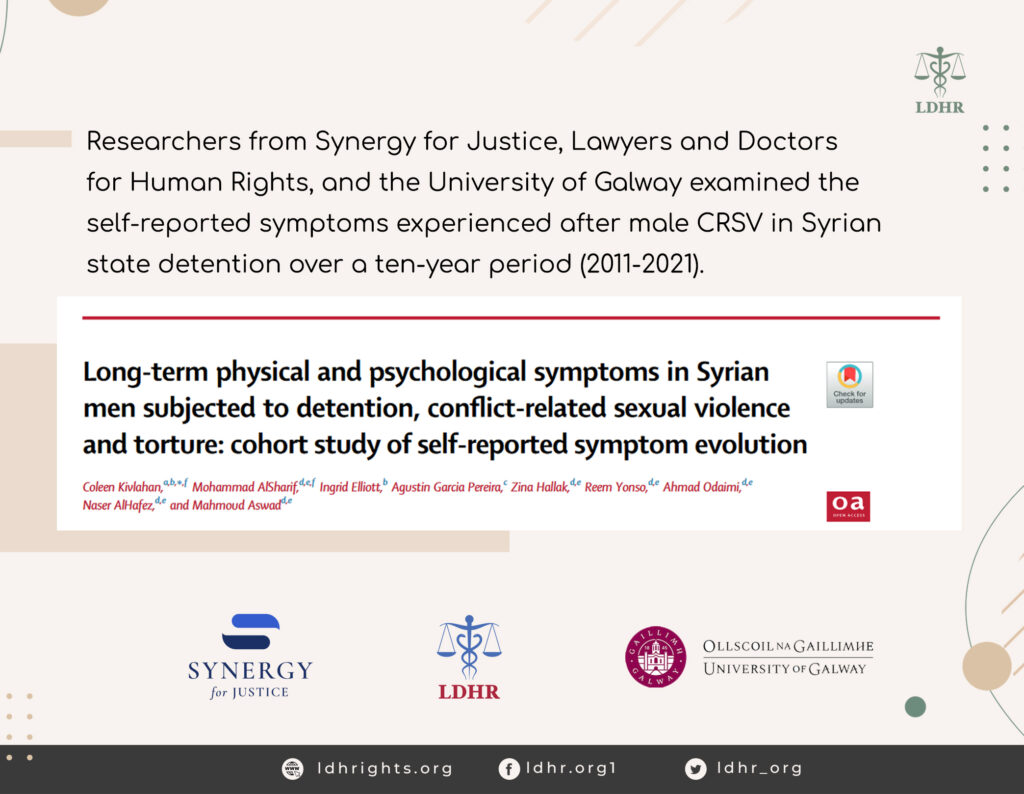

We are delighted to share that a landmark study, Long-term physical and psychological symptoms in Syrian men subjected to detention, conflict-related sexual violence (CRSV), and torture: cohort study of self-reported symptom evolution, was published in eClinical Medicine, a Lancet journal.
Research in context:
Evidence before this study
While little is known about the prevalence of male sexual violence in conflict settings, even less is known about long- term symptoms and conditions suffered by male conflict- related sexual violence (CRSV) survivors. Prior studies reflect point prevalence of acute conditions; some studies describe survivor and stakeholder-reported effects at varying times following CRSV.
Added value of this study
This is the first study to our knowledge in which male CRSV survivors described physical and mental health symptoms over four time periods. Memories of detention and the post- release periods were described during the forensic medical evaluation (FME) and semistructured interview (SSI). The reported evolution of symptoms provides insight into conditions which persist, resolve or grow over time. Given the typically prolonged time to access forensic evaluations and services after detention, health care professionals’ understanding of these evolving symptoms is essential.
Implications of all the available evidence
Men subjected to CRSV while detained are at risk for medical and psychological symptoms lasting years. To achieve improved access to effective treatment, recognition of the constellation of symptoms unique to men (anger, loss of confidence, self-esteem, avoidance, and lack of trust) must be at the heart of access and care design. It is vital for informed policy to demand attuned services for men to improve livelihoods, family and community cohesion, and reduce conflict on many levels
The research is now available online on: https://ldhrights.org/en/wp-content/uploads/2024/05/Galway-research.pdf

